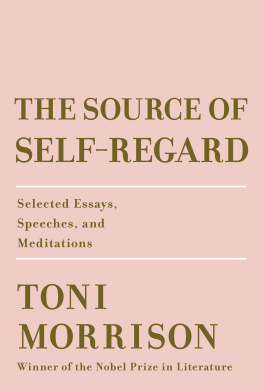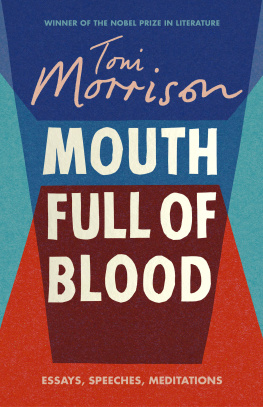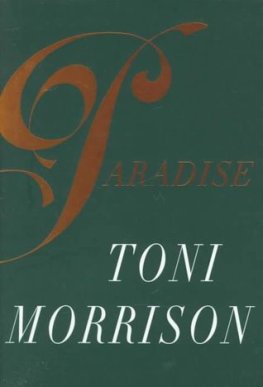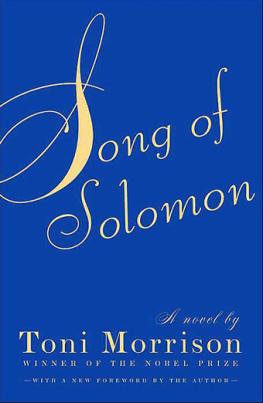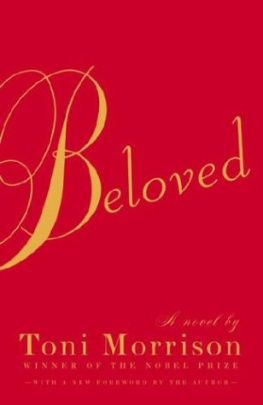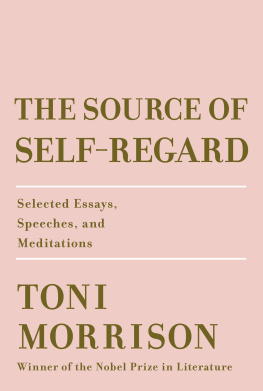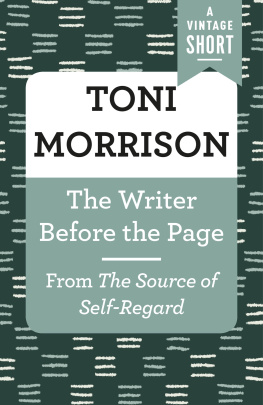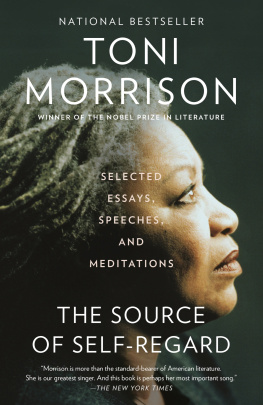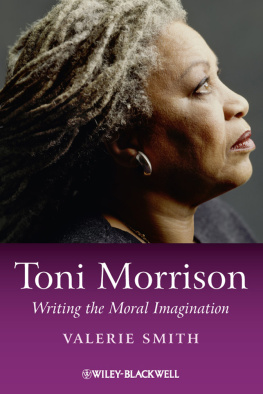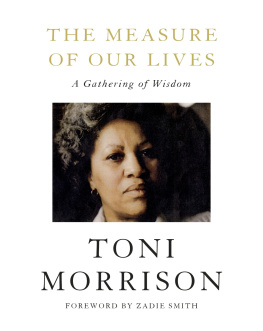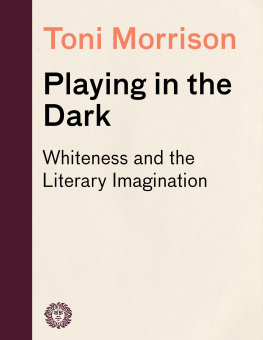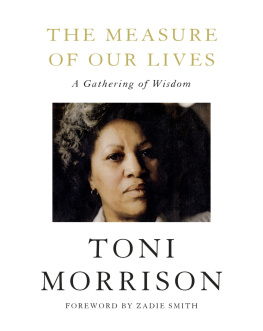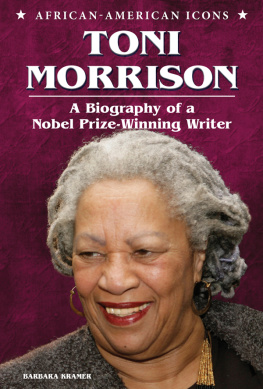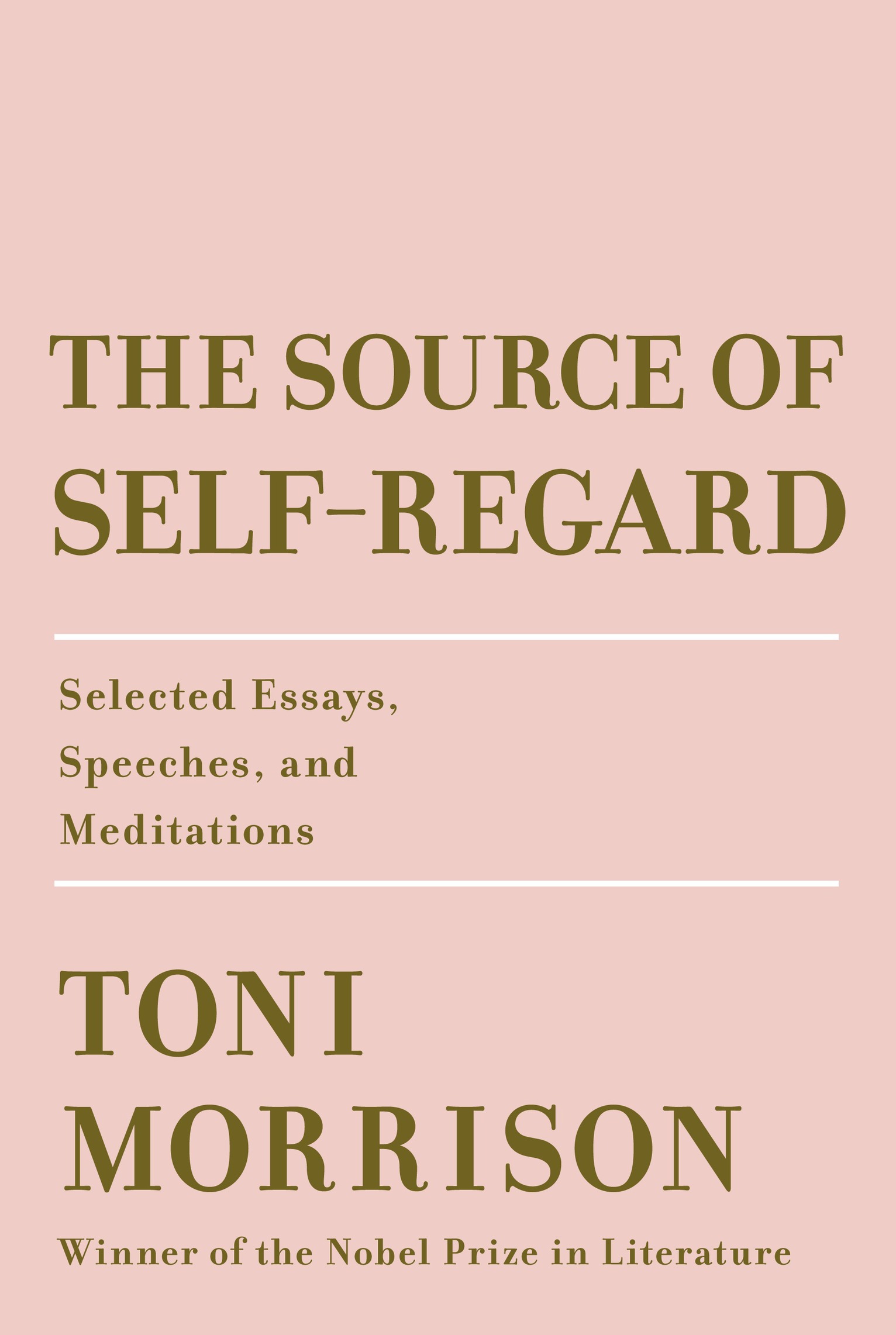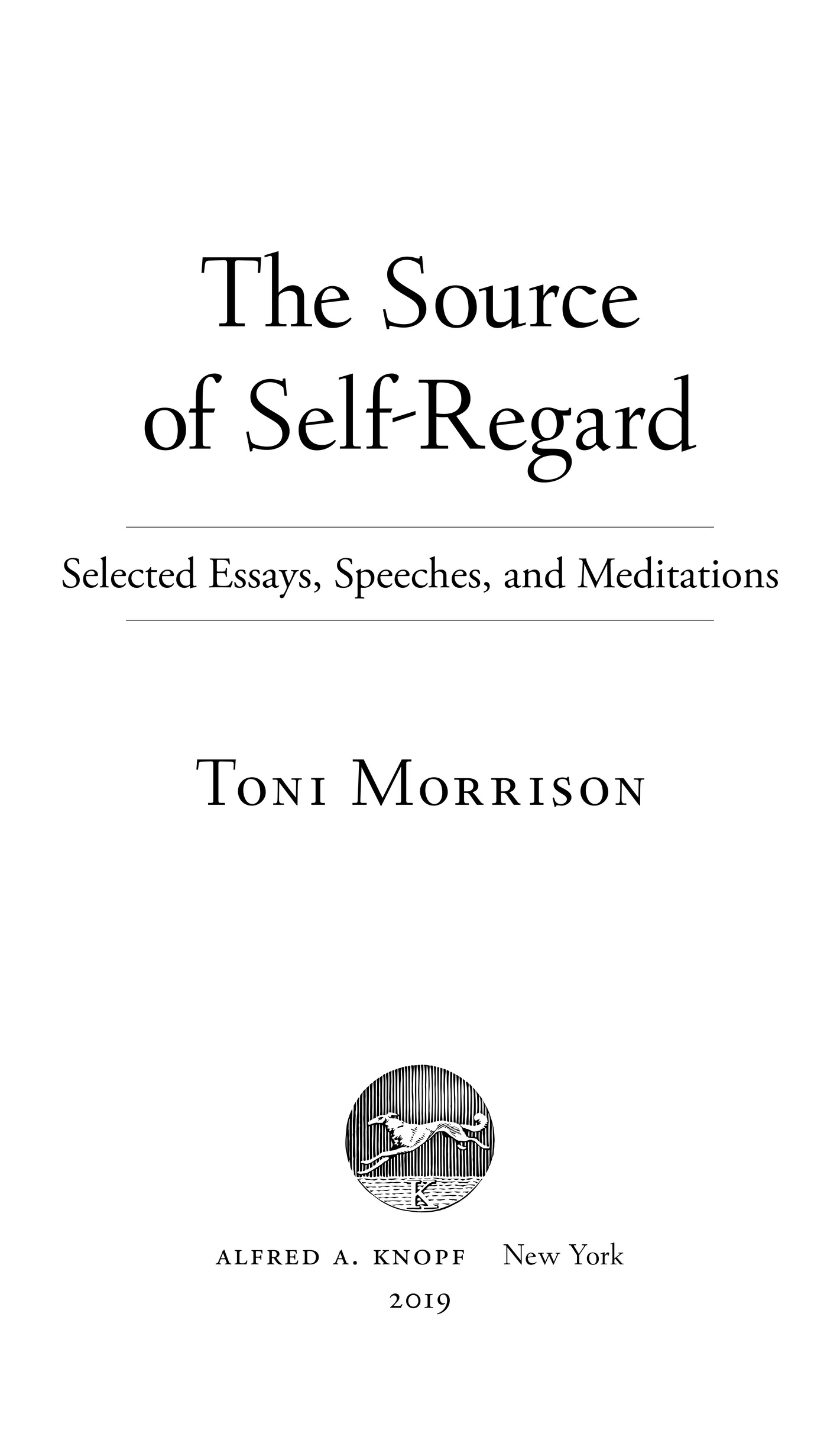THIS IS A BORZOI BOOK PUBLISHED BY ALFRED A . KNOPF
All rights reserved. Published in the United States by Alfred A. Knopf, a division of Penguin Random House LLC, New York, and distributed in Canada by Random House of Canada, a division of Penguin Random House Canada Limited, Toronto.
Knopf, Borzoi Books, and the colophon are registered trademarks of Penguin Random House LLC.
Names: Morrison, Toni, author.
Title: The source of self-regard : selected essays, speeches, and meditations / Toni Morrison.
Description: First edition. | New York : Alfred A. Knopf, 2019.
Identifiers: LCCN 2018023690 (print) | LCCN 2018024415 (ebook) | ISBN 9780525521112 (Ebook) | ISBN 9780525521037 (hardcover)
Classification: LCC PS 3563. O 8749 (ebook) | LCC PS 3563. O 8749 A 6 2019 (print) | DDC 814/.6dc23
Peril
Authoritarian regimes, dictators, despots are often, but not always, fools. But none is foolish enough to give perceptive, dissident writers free range to publish their judgments or follow their creative instincts. They know they do so at their own peril. They are not stupid enough to abandon control (overt or insidious) over media. Their methods include surveillance, censorship, arrest, even slaughter of those writers informing and disturbing the public. Writers who are unsettling, calling into question, taking another, deeper look. Writersjournalists, essayists, bloggers, poets, playwrightscan disturb the social oppression that functions like a coma on the population, a coma despots call peace, and they stanch the blood flow of war that hawks and profiteers thrill to.
That is their peril.
Ours is of another sort.
How bleak, unlivable, insufferable existence becomes when we are deprived of artwork. That the life and work of writers facing peril must be protected is urgent, but along with that urgency we should remind ourselves that their absence, the choking off of a writers work, its cruel amputation, is of equal peril to us. The rescue we extend to them is a generosity to ourselves.
We all know nations that can be identified by the flight of writers from their shores. These are regimes whose fear of unmonitored writing is justified because truth is trouble. It is trouble for the warmonger, the torturer, the corporate thief, the political hack, the corrupt justice system, and for a comatose public. Unpersecuted, unjailed, unharassed writers are trouble for the ignorant bully, the sly racist, and the predators feeding off the worlds resources. The alarm, the disquiet, writers raise is instructive because it is open and vulnerable, because if unpoliced it is threatening. Therefore the historical suppression of writers is the earliest harbinger of the steady peeling away of additional rights and liberties that will follow. The history of persecuted writers is as long as the history of literature itself. And the efforts to censor, starve, regulate, and annihilate us are clear signs that something important has taken place. Cultural and political forces can sweep clean all but the safe, all but state-approved art.
I have been told that there are two human responses to the perception of chaos: naming and violence. When the chaos is simply the unknown, the naming can be accomplished effortlesslya new species, star, formula, equation, prognosis. There is also mapping, charting, or devising proper nouns for unnamed or stripped-of-names geography, landscape, or population. When chaos resists, either by reforming itself or by rebelling against imposed order, violence is understood to be the most frequent response and the most rational when confronting the unknown, the catastrophic, the wild, wanton, or incorrigible. Rational responses may be censure; incarceration in holding camps, prisons; or death, singly or in war. There is, however, a third response to chaos, which I have not heard about, which is stillness. Such stillness can be passivity and dumbfoundedness; it can be paralytic fear. But it can also be art. Those writers plying their craft near to or far from the throne of raw power, of military power, of empire building and countinghouses, writers who construct meaning in the face of chaos must be nurtured, protected. And it is right that such protection be initiated by other writers. And it is imperative not only to save the besieged writers but to save ourselves. The thought that leads me to contemplate with dread the erasure of other voices, of unwritten novels, poems whispered or swallowed for fear of being overheard by the wrong people, outlawed languages flourishing underground, essayists questions challenging authority never being posed, unstaged plays, canceled filmsthat thought is a nightmare. As though a whole universe is being described in invisible ink.
Certain kinds of trauma visited on peoples are so deep, so cruel, that unlike money, unlike vengeance, even unlike justice, or rights, or the goodwill of others, only writers can translate such trauma and turn sorrow into meaning, sharpening the moral imagination.
A writers life and work are not a gift to mankind; they are its necessity.
PART I
The Foreigners Home
The Dead of September 11
Some have Gods words; others have songs of comfort for the bereaved. If I can pluck up courage here, I would like to speak directly to the deadthe September dead. Those children of ancestors born in every continent on the planet: Asia, Europe, Africa, the Americas; born of ancestors who wore kilts, obis, saris, geles, wide straw hats, yarmulkes, goatskin, wooden shoes, feathers, and cloths to cover their hair. But I would not say a word until I could set aside all I know or believe about nations, war, leaders, the governed and ungovernable; all I suspect about armor and entrails. First I would freshen my tongue, abandon sentences crafted to know evilwanton or studied; explosive or quietly sinister; whether born of a sated appetite or hunger; of vengeance or the simple compulsion to stand up before falling down. I would purge my language of hyperbole, of its eagerness to analyze the levels of wickedness; ranking them, calculating their higher or lower status among others of its kind.
Speaking to the broken and the dead is too difficult for a mouth full of blood. Too holy an act for impure thoughts. Because the dead are free, absolute; they cannot be seduced by blitz.
To speak to you, the dead of September, I must not claim false intimacy or summon an overheated heart glazed just in time for a camera. I must be steady and I must be clear, knowing all the time that I have nothing to sayno words stronger than the steel that pressed you into itself; no scripture older or more elegant than the ancient atoms you have become.

